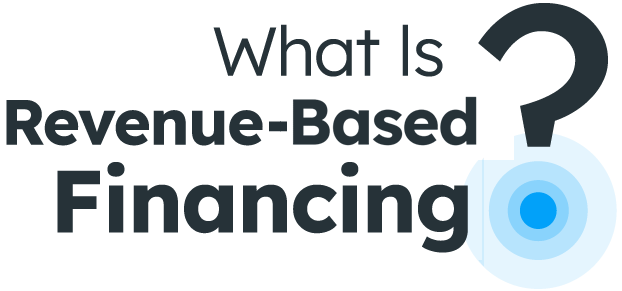An Alternative Financing Solution for Small Businesses
Revenue-based financing is a necessary funding option for businesses that either don’t qualify for traditional bank loans or need a faster, more straightforward solution.
Revenue-Based Financing Explained
Revenue-based financing (RBF), also known as sales-based financing, is a type of funding for businesses that provides access to an upfront sum of working capital in exchange for a portion of the business’s future revenue. The business then remits payment to the RBF provider according to the payment schedule (typically daily or weekly), until a total amount, agreed to upfront, has been paid in full.
The total amount to be remitted is determined through underwriting based on the amount of funding provided and the business’s financial situation, such as monthly revenue, expected growth, and time in business. The percentage of revenue remitted is usually fixed at the time of the agreement.
Flexible Payments
The fact that payments are a fixed percentage of a business’s revenue is a key characteristic of RBF. Both the business and the RBF provider rely on the business’ success – their interests are aligned, and they are working towards the same outcome.
The amount remitted is always tied to a percentage of the business’s revenue. If there’s a decrease in revenue, the owner can request a corresponding decrease in the amount remitted to the RBF provider, without fees or penalties. Some RBF agreements may allow for a pause in remittances if the business is not generating revenue or facing financial difficulties. This flexibility can help business owners manage their cash flow during slower periods, making it an attractive option for small businesses.
Reduce Risk
If a business is not generating any revenue, but is otherwise abiding by its contract, it will not be required to make any payments to the RBF provider until it resumes generating revenue. Moreover, it is not a breach of contract, and no further money is owed, if the business runs out of money, whether because of bankruptcy, closing its doors or otherwise. That is, as long as the business and its owner have abided by the terms of the RBF agreement, there should be no further money owed and no personal liability.
It’s important for businesses to carefully review the terms of their agreement to ensure they understand the implications of changes in revenue on their payment obligations. A reputable RBF provider commits to working with businesses to help them succeed and may provide additional support like courtesy payment pauses or courtesy reductions to help the business get back on track.
Key Product Features
Payments Are a Percentage of Revenue
If Revenue Decreases, Payments Can Too
No Revenue, No Payments
How It Works
Eligibility criteria to apply for RBF vary by provider, but common requirements include having an established and profitable business with a minimum amount of revenue. Learn more about the application process and what you can expect.
Learn More